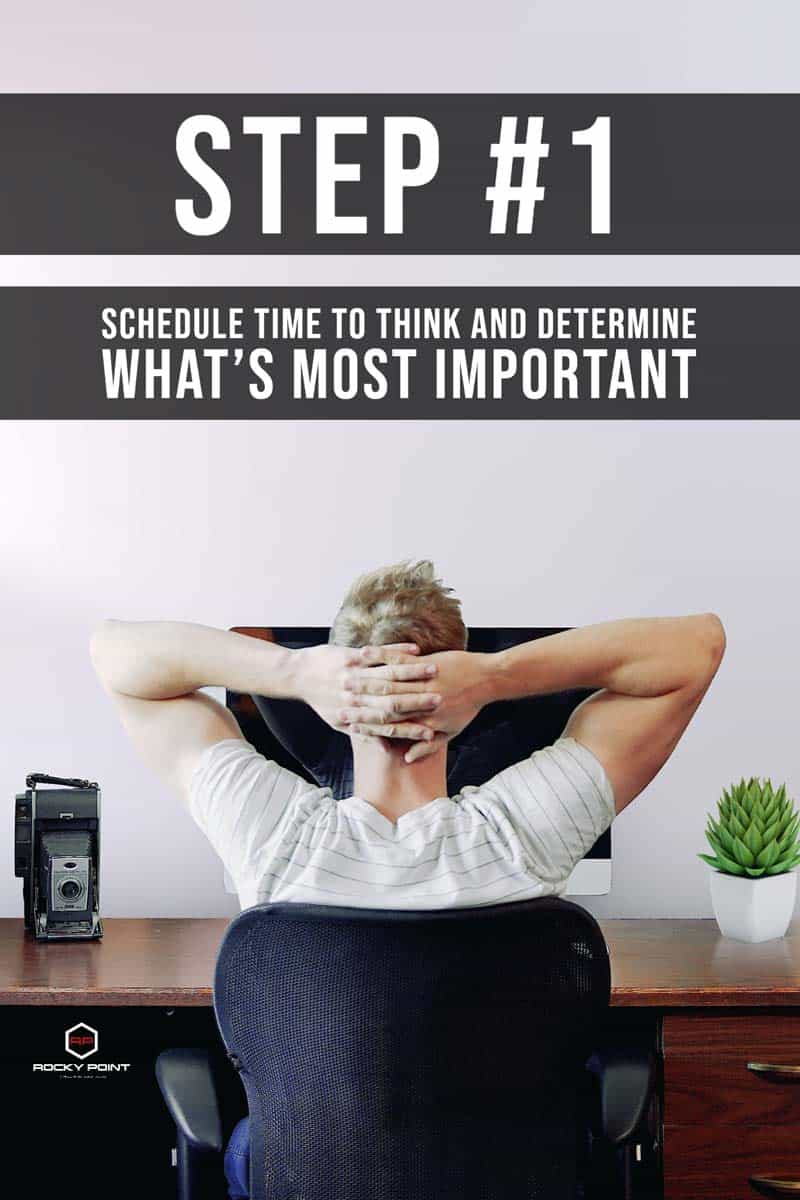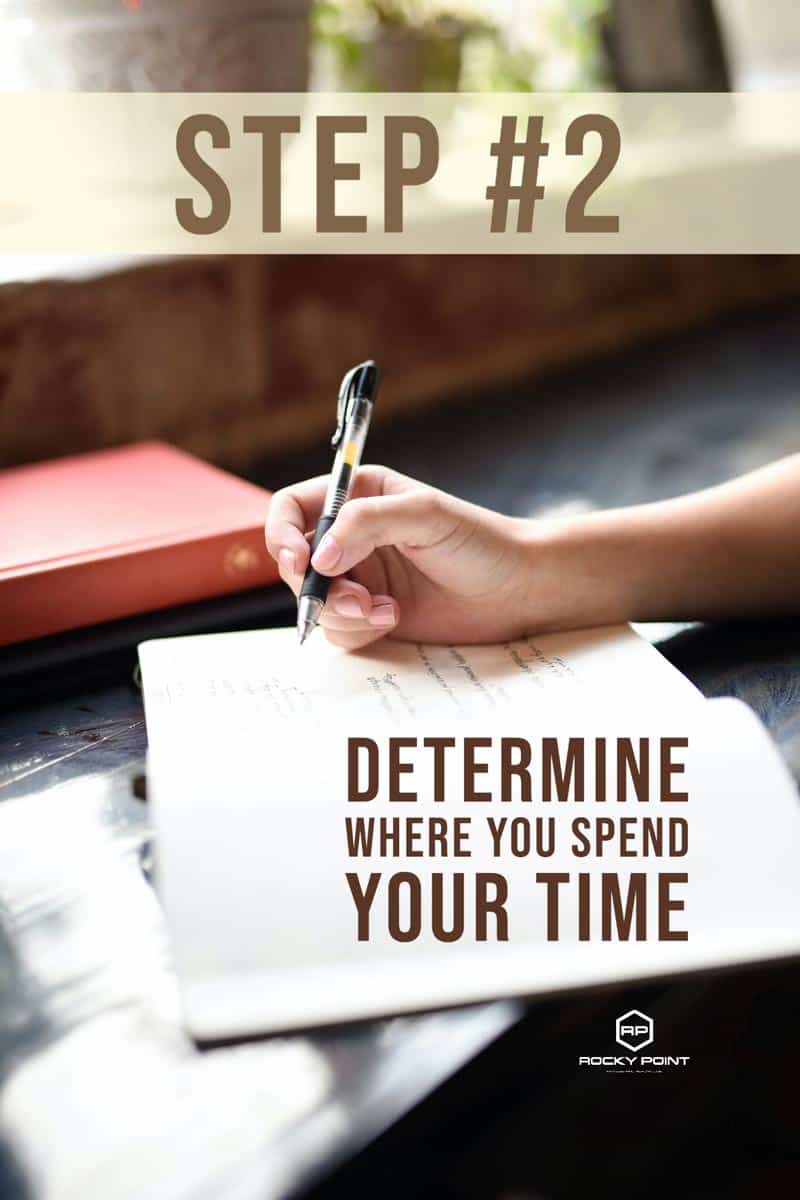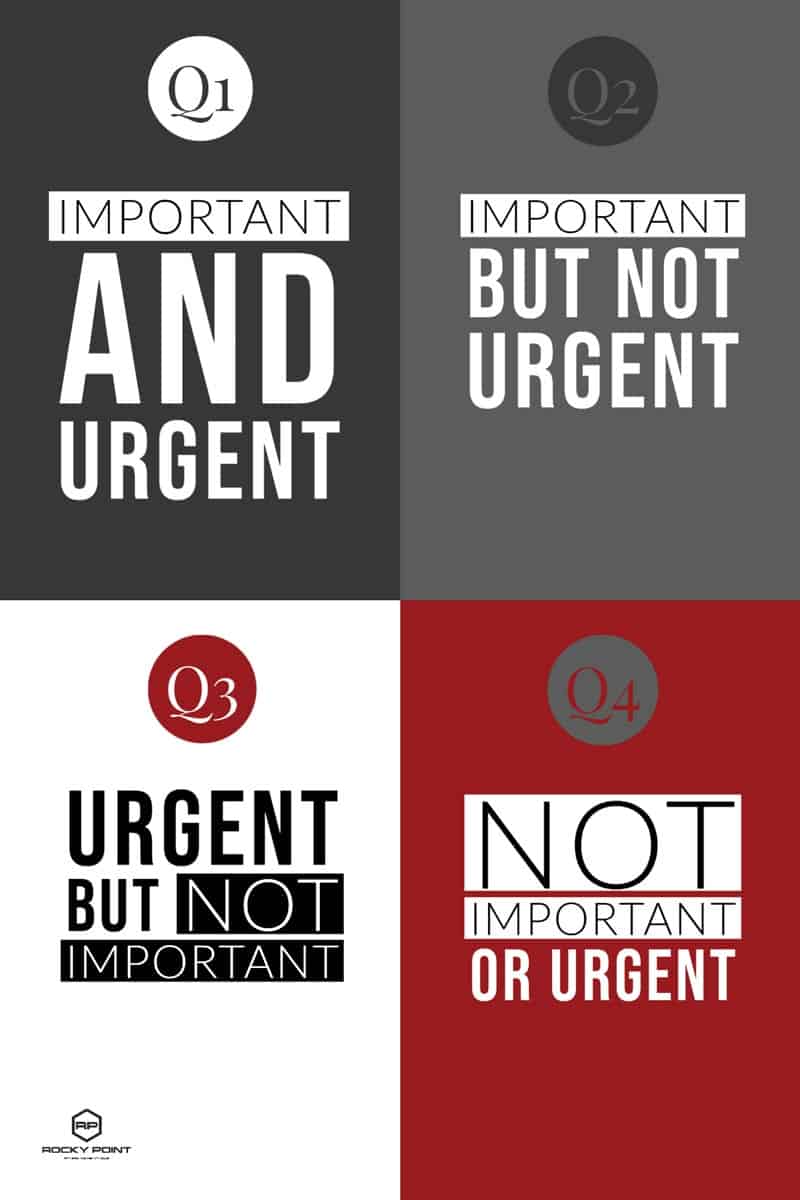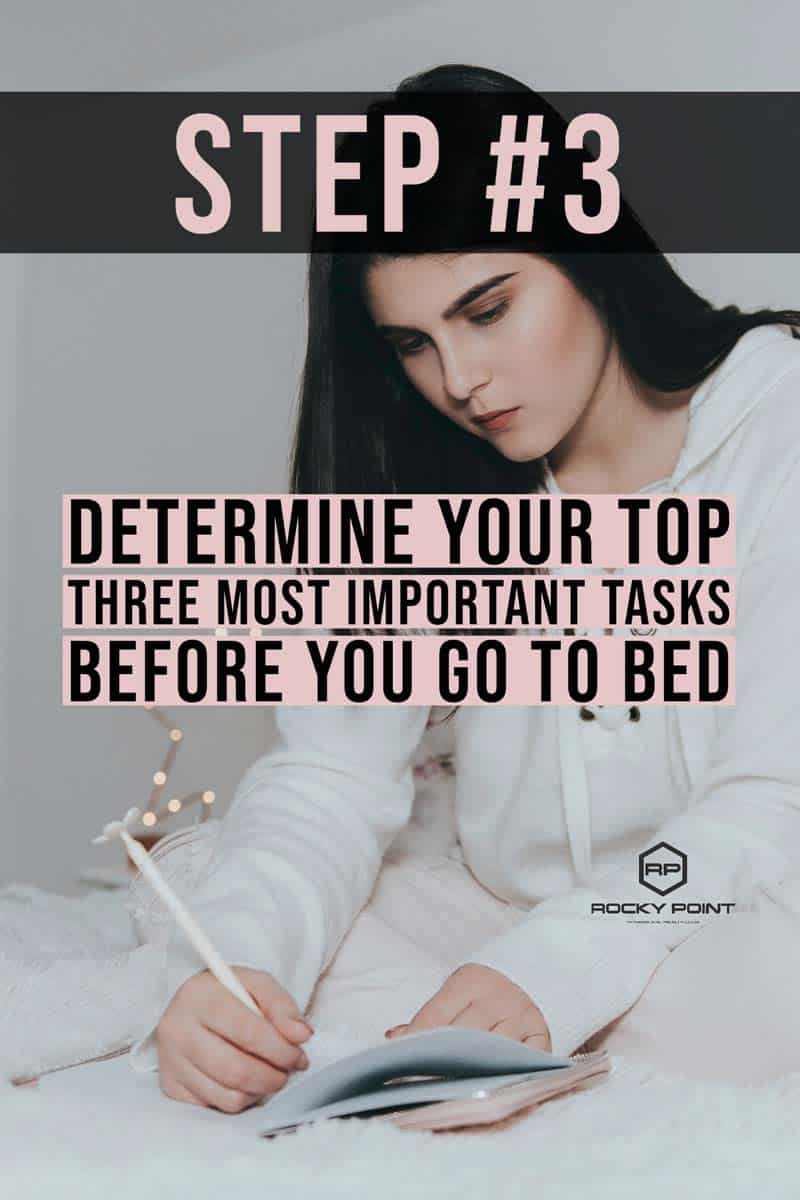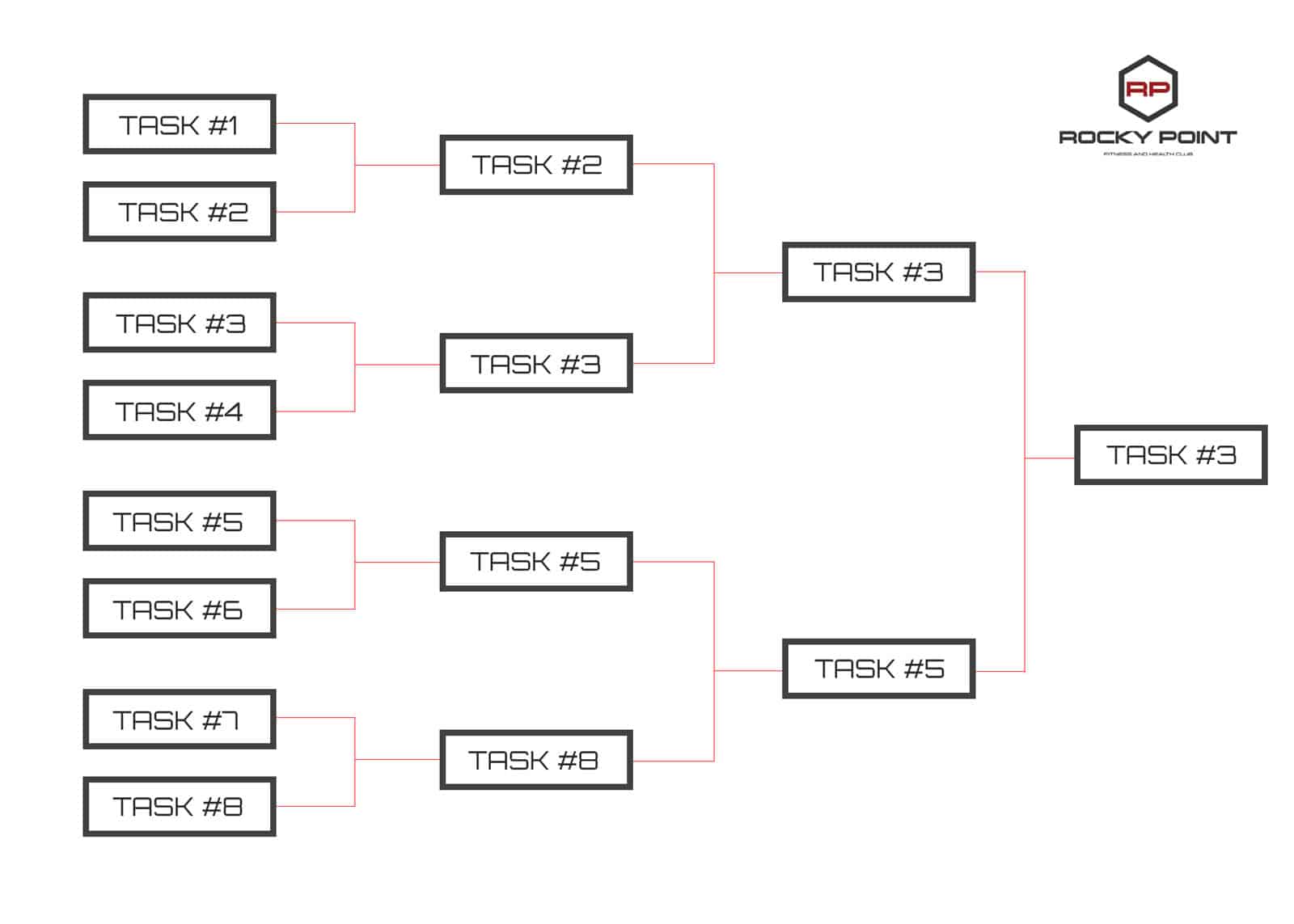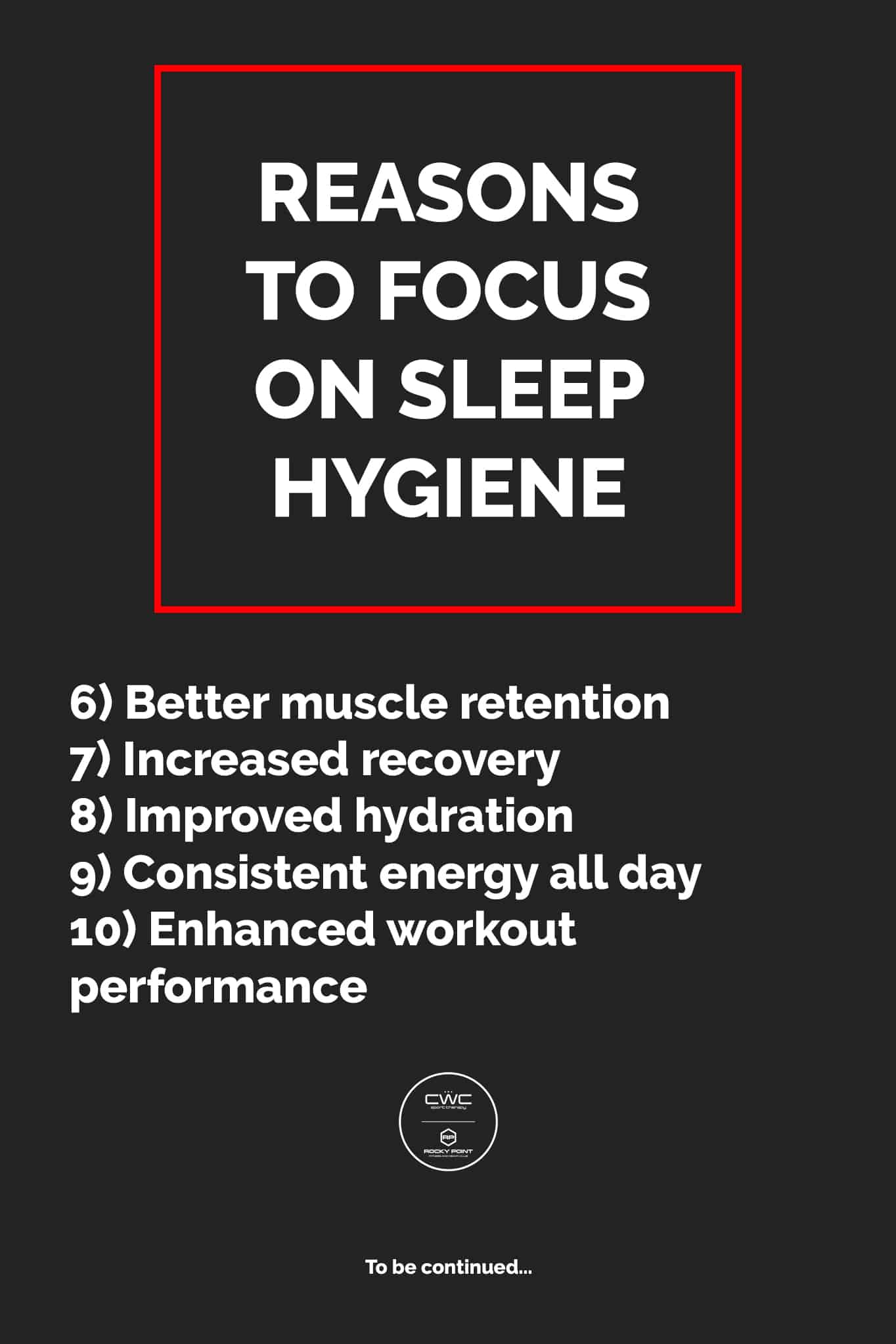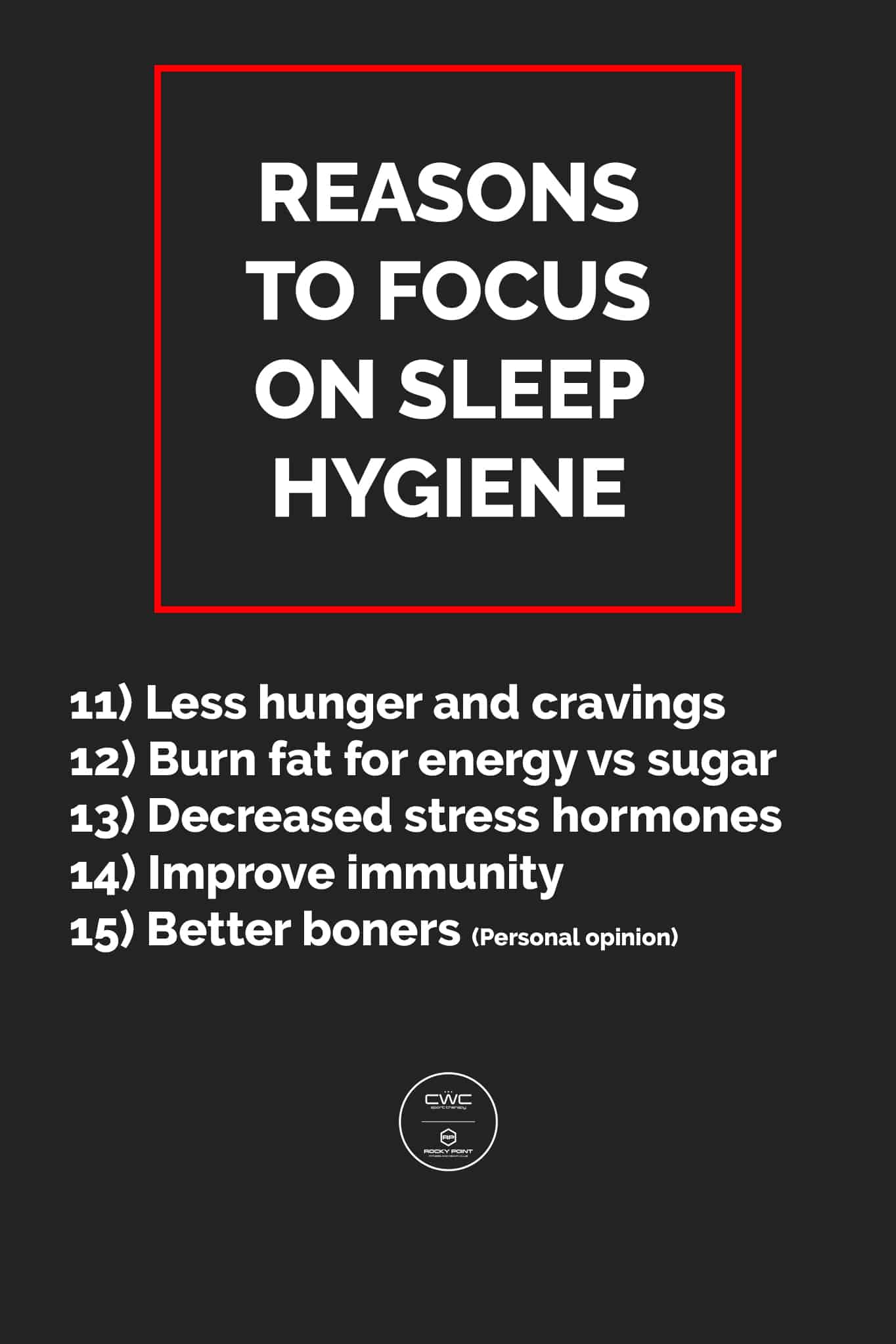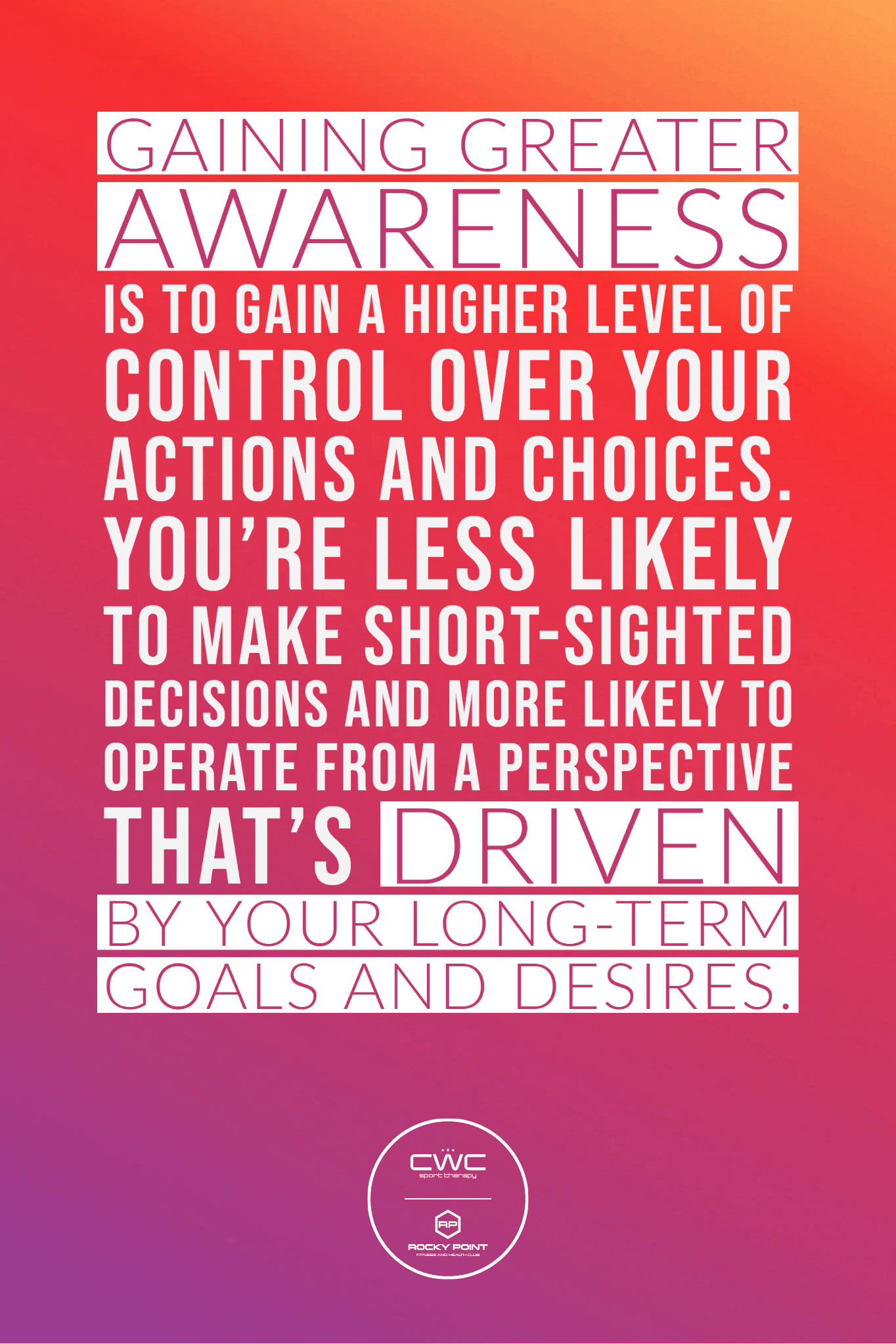Relieve Anxiety & Prioritize Your Life In 3 Simple Steps
After being formally diagnosed with Panic Disorder in my twenties, I slowly learned a thing or two about managing the crippling powers of anxiety. I’ve been extremely fortunate over the years, managing my symptoms through lifestyle interventions, and avoiding prescription medication. But make no mistake, I’m not a psychiatrist, and my personal journey has not been easy. In fact, I occasionally battle with flare ups of anxiety to this day. This post will not “cure” you, nor will it act as a substitute for any medication you might be taking. Please discuss any thoughts of altering your medication with your Medical Doctor, should you wish to do so.
My intent here is to relieve some stress and help you gain a little clarity. Together, we will help determine what’s most important in your life, and I’ll share some immediate steps that you can take, helping you prioritize your decisions and actions.
First, let’s admit a hard truth, we all have the same amount of time in a day. We’re all subject to the 24 hours that we’ve been granted. This is the only level playing field in life. You don’t have control of the genes you inherited or the country you were born in, but you most certainly can control how you spend your time.
I get it, you’re busy. You’ve got kids, bosses, commitments, and a million things to excuse you. But wouldn’t it be nice to:
- Relieve some anxiety and feel confident in your decisions…
- Consistently exercise, without having to sacrifice what’s most important to you…
- Be more productive at work, while still having time for your kids…
- Eat better, no matter how chaotic life gets.
If you take action on any of the steps below I’m confident that you’ll start spending more time where it matters most. More importantly, I’m certain that it will help relieve some anxiety in your life.
You’re also likely to:
- Gain a deeper sense of purpose…
- Feel energized, ready to take on the day…
- And boost your self-confidence.
I wanted to give you a lot in this post so don’t sweat it if you can’t get through it all in one sitting. Consider reading it quickly at first, scanning over the concepts and strategies, coming back to it periodically, and implementing the action steps as you feel ready.
Step 1 – Schedule Time to Think, Determine What’s Most Important.
People often struggle to clearly define what’s important to them, what it is that they truly want, and whether they realize it or not, this naturally causes anxiety. Step 1 is simple but powerful, take some time to think, write, and get clear about what’s most important.
What are your short and long-term goals?
What are your deepest values?
What does your dream life look like?
What are the outcomes you are trying to achieve?
Just the act of reading those questions might create a little anxiety. If it does, worry not, you’re not alone. Everyone gets a little nervous when thinking about the uncertainties of the future. With so many possibilities it’s hard to determine where to start, should you focus on your health or your finances? Should you do “x” or “y”? The solution is simple, dedicate some time to think, make decisions, put pen to paper, and stop the endless ruminating.
I recommend starting with the end, the very end, what’s most important when you’re on your deathbed? What are your values? Values act as an internal compass, they help ease all other decision making, but don’t stay in reflection too long, it’s easy to get lost in the weeds. For now, determine 3-5 values that are important to you and rank them against each other to discover what’s most important. You can always upgrade them in the future.
Over the past 20 years or so I’ve refined mine and I’m sure they will continue to evolve with time. I thought I would share them for reference, helping to get your creative juices flowing, here they are in order of importance:
Love, Learn, Contribute.
I expanded on each of them, forming questions that assist with evaluating the decisions that come up in my life:
Love:
Give love to yourself by ensuring you carve out time for self-care daily. “Remember; “Always something” is better than “all or nothing”. Will making this decision improve your physical or mental health?
Express unconditional love to those that are most important to you. Will making this decision express love to your spouse, family, or close friends?
Feel love towards what you are doing. Ensure it’s connected to your purpose of “inspiring awesome lives”. Will making this decision ignite passion in your life? Will it make the best use of your strengths? Will it grant you increased freedom to do other things that you love?
Learn:
Grow in character, intelligence, and wisdom. Will making this decision create a growth opportunity in your life?
Teach others what you learn. Will making this decision help solidify my knowledge and educate others?
Gain experience. Will making this decision help me learn through experience?
Contribute:
Inspire others to live an awesome life. Will making this decision help inspire others to live an awesome life?
Create meaning and purpose for others. Will making this decision give others a deeper sense of meaning and purpose?
Give back. Will making this decision help me to “pay it forward” and give back to society?
Remember, these are my values, you don’t have to agree with them of course. Ideally yours come from within. I just put them here for insight. If one of them resonates with you feel free to list it as your own.
Here’s a list of 230 personal values for additional reference. Click here.
Again, don’t spend too much time here, it’s easy to get lost. Have comfort knowing that your values will slowly evolve and change over time. Project yourself to the end of your life and use your intuition to pick ones that seem most important right now.
Do this now. Stop reading and take 10 minutes to pick a couple core values.
Now that we have a compass, let’s determine what we want. This is where it gets exciting! Pick an area of your life, whether that’s your career, your family, your health, or your spirituality. Just focus on one for the time being.
Now take 5 more minutes and write down a couple of outcomes that you want to achieve. I recommend focusing on a timeline between five and ten years out. Let go of any thoughts of how you will achieve the outcome, allow anything to be possible. Lastly, don’t get distracted by short-term desires, measure your outcomes against your long-term values that you just determined.
From there, narrow it down to one outcome, write down the most important thing to achieve within the next year.
Now you have a manageable project that you can prioritize and break down in subtasks. Write down what the very next action item is, even if that’s something like “Spend 10 minutes determining more tasks for this project”. Ensure that this next action item doesn’t take longer than an hour or so to complete. If it does, it’s likely too big and you’ll find it easy to procrastinate. The easier it is, the more likely you’ll get it done.
Here’s an example, you decided to focus on your health, then you decided on a couple of outcomes like losing 20lbs of excess body fat and running your first marathon, then you decided to focus on running, thinking it might take care of the outcome of losing weight, now you have a project. Write down a few tasks like “spend 1 hour researching upcoming marathons”, and “order new running shoes online”, and “request 3 consultations from local fitness coaches to determine who can help with my program”. Finally, decide what the very next action is in order to successfully move forward.
I know that this all seems like a lot of work, that’s because it is, but it’s powerful work that will relieve anxiety and fuel your passion, making your dreams become reality. Realize that decision making and prioritizing is a skill, and the more you practice, the more reps you put in, the better you become at determining what’s most important. As with anything, the key component is deliberate practice. Be comfortable with the fact that you might not get it right at first, you might even waste some time. If you keep putting in the reps and devoting the time your anxiety will subside, and eventually you’ll hone the skills of decision making, helping you prioritize your life.
As I mentioned previously, you’ll be revisiting these questions for the rest of your life. For now, focus on getting some reps in. If you didn’t stop above when I asked you to, stop now before reading on. Set a timer for 10 minutes, let your brain wonder and start to put pen to paper.
Still haven’t stopped? All good, we can all use a little guidance and help. Consider how invaluable it is to have a role model, someone who’s navigated the rapids before you and has a map for you to follow. Our coaches eat breathe and live this stuff. Over the years we’ve gained key distinctions and developed a proven system to help you make decisions, take action, and gain the results you’re seeking. They’d be happy to help, and at the time of this writing, they are offering a free, no obligation consultation. Click here and request yours, we’ll be back to you within the next 24 hours.
Step 2 – Determine Where You Spend Your Time.
Now that we are clear on what’s most important it’s time to get a better understanding of how we are spending our time. One of my favourite authors, the late Stephen Covey has developed a tremendous tool for this. Time spent is divided into 4 quadrants:
- Quadrant 1 is important and urgent.
- Quadrant 2 is important but not urgent.
- Quadrant 3 is urgent but not important.
- Quadrant 4 is not important or urgent.
Here’s 4 examples to help you better understand the quadrants:
- Quadrant 1 = Filing your taxes that are past due.
- Quadrant 2 = Taking time to reflect on your values.
- Quadrant 3 = Answering dozens of emails.
- Quadrant 4 = Scrolling through Instagram.
[/vc_column_text][vc_single_image image=”10292″ img_size=”large” alignment=”center”][vc_column_text]Take a moment. Contemplate where you are spending the majority of your time. What quadrant is dominating your life? Remember, the goal is to gain awareness, we’re not trying to completely eliminate low-leverage activities. It’s about being balanced and consistent, ensuring there is an appropriate amount of time spent in each quadrant.
What I’ve begun to notice over my life is that “busy” people are often spending far too much time in Quadrant 3, the urgent but not important category, and not enough time in Quadrant 2, the important but not urgent category.
Once you know what’s important to you, what your values are, and the long-term outcomes you wish to achieve, it becomes apparent how to organize your time. At minimum, I suggest that you take time to prioritize these tasks, committing them to a schedule. And, if you can, take one from Quadrant 2, and develop a ritual that you complete daily, no matter what.
If you’re up to it let’s take this step even further. I challenge you to complete a “time dairy”.
Here’s how you do it:
Set a stopwatch to go off every hour that you are awake. At the end of each hour determine and document where you are spending the majority of your time. (Complete a minimum of three days; five – seven days will give you improved accuracy)
Mark each hour of time with one of the following quadrants:
Q1: important and urgent.
Q2: important but not urgent.
Q3: urgent but not important.
Q4: not important or urgent.
Additionally, mark each hour of time with A,B,C, or D
A: You’re awesome at this and love doing it. You lose track of time when doing this.
B: You’re awesome at it, but don’t love it.
C: You’re capable of it, but it gives you some anxiety and you’d rather do other things.
D: You hate it and it stresses you out. Lots of frustration, and it makes your day horrible.
I recognize that Step 2 is challenging to implement, that many will opt to skip it. Whenever I suggest it to people I’m often met with resistance and excuses. “I’m too busy for this, I literally don’t have enough time in the day, and now you want me to take time to track how I spend my time?! This isn’t happening.”.
Look, I get it, it’s difficult to get yourself to do this, but remember, the good things in life often don’t come easy. Bringing focus to how you spend your time will instantly improve where you’re spending it. You’ll be rewarded with increased self-awareness, less likely to make short-sighted decisions, and more likely to operate from a perspective that’s driven by your long-term values.
Still struggling to implement this step? Consider starting with a smaller block of time, perhaps your morning routine before going to work? Or your evening routine upon leaving? As with so many things, something is always better than nothing.
Step 3 – Determine Your Top Three Most Important Tasks. Figure Out The Essential and Eliminate the Rest.
Now we know what’s most important and how we are spending our time. Feels good doesn’t it?! Want to relieve additional anxiety and further increase productivity? Of course you do! Let’s set you up for improved success.
Determine your top three tasks to tackle the evening before each day and eliminate the rest. Doing so will have a compound effect. First, you’ll be tapping into subconscious energy. It’s been shown that the brain does much of its problem solving during sleep. Writing down your tasks and priorities before you go to sleep will put this power to work for you. You’ll often wake up having miraculously discovered a potential solution to the task that was presenting a problem.
Additionally, you’ll wake up with clarity, ready to tackle your most important tasks first thing in the morning. You’ll start your day off with a win, awarding your self confidence, peace of mind, and freedom to do whatever else you feel like that day, knowing that you’ve already accomplished what you set out to do.
Still have a massive “to do” list that you’re having trouble prioritizing into just three tasks? If so, you probably didn’t complete steps 1 and 2. Don’t sweat it, you’re likely not alone. Here’s an efficiency tip to help you get organized, putting your mind at ease, so that you can get some restful sleep.
Take 8 random tasks on your “to do” list and make them compete for your time. For instance, take Task #1 and compare it to Task #2, what’s more important? Let’s assume it’s Task #2, it moves forward in the competition. Now take Tasks #3 and compare it to Tasks #4, what’s more important? Let’s assume that it’s Task #4, it moves forward as well. Do this until you’ve completed the drill for all 8 tasks.
Now make Task #2 compete against Task #4, what’s more important? Let’s say it’s Task #4, it moves further forward in competition getting closer to the number one spot. Quickly you’ll arrive at your most important tasks!
Remember, the beginning of a great day always starts the night before. If you do nothing else after reading this blog post, do this one thing, take that lengthy to-do list and make your tasks compete for your precious time.
What Have We Learned?
1. Take the time to determine what’s most important to you…
2. Gain awareness of how you’re spending the majority of your time…
3. Determine your top three most important tasks the night before each day.
Most importantly, remember that less is often more. Check in with yourself and projects often. On a scale of 1-10 how busy do you feel? If you’re feeling overwhelmed you need to cut things out of your life. Only commit to the most important projects and tasks, giving you a sense of 7 of 10 on the “busyness scale”. This will force you to be more effective in selecting the most important, awarding you energy reserves instead of energy deficits.
We’ve covered a lot. I hope you were able to take action, relieve a little anxiety, and implement some of these strategies into your life. If you’re having trouble getting started consider what’s holding you back. Is it fear of the unknown? Perhaps it’s motivation or inspiration? Possibly all of it feels overwhelming, you’re just not sure where to start?
If you’re ready to change your life, we’re here to help.
What do we do?
Our professional coaches specialize in helping middle aged men and women create awesome lifestyle habits, so that they can rejuvenate their health, physically and mentally.
- They’ll help you achieve and maintain your goals, even when life gets “busy”.
- They show you how to get active, no matter what shape you’re currently in.
- And they’ll build fitness and health priorities into your life, without them taking over.
The result? You’ll:
- Learn what works for you, without giving up your priorities.
- Boost your mental toughness and excel in all areas of your life.
- Optimize your health, physically and mentally.
Get the accountability you need, fill out the form, request a free consultation today.
– Coach Errol Clark, PPHC, CCFT, CF-L3
About the author:
Coach Errol Clark holds over 12 years of experience as a performance coach and has helped hundreds of clients lose weight, increase strength, improve function, and decrease pain in their lives.
Errol believes in continuing education and constant learning. He is one of the few trainers in North America to successfully complete the Crossfit L3 CCFT designation and the OPEX CCP coaching modules.
Errol specializes in behavioural change and has extensive knowledge in program design. He also has a refined skill set for improving the nuances of functional movement.


